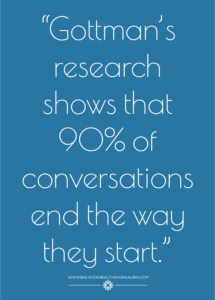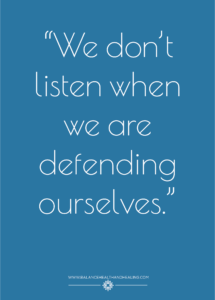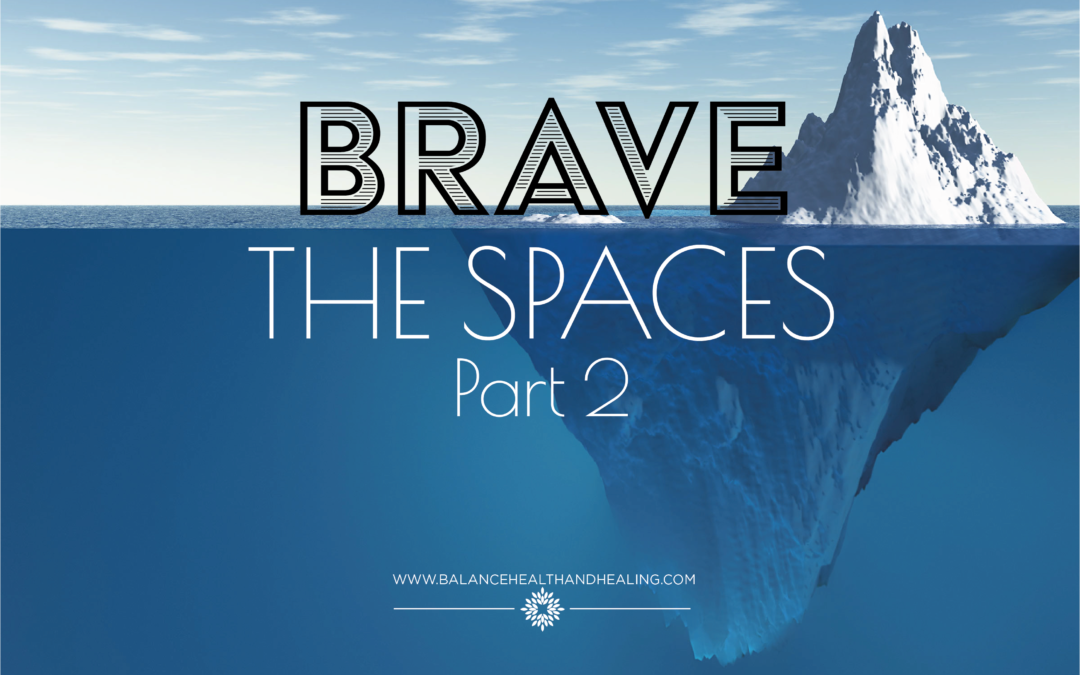In my last post, I talked about the importance of bravery in our relationships. If you haven’t read it, feel free to take a look HERE.
One important aspect of bravery in our relationships is communication. Honest, open communication requires a high level of vulnerability and bravery. Many couples that I have worked with know that their communication patterns need to increase in honesty and vulnerability, but they aren’t sure how to go about making that happen. It can seem scary and overwhelming; many people feel unsure of where to start. Hopefully this blog can be a crash course in some of the best ways to bravely improve your communication, whether with a spouse, child, parent, friend, romantic partner, etc.
Soft Start-Up
The first principle of brave communication is what prolific marriage researcher, John Gottman, calls a soft start-up. Being soft feels a little counterintuitive to bravery. However, a soft  start-up sets the tone and creates a space for vulnerability and bravery. Gottman’s research shows that 90% of conversations end the way they start (Gottman, 7 Principles for Making Marriage Work). Therefore, if we want our relationships to be vulnerable and brave, starting soft is a great option. This means trying your best to emotionally regulate beforehand, describing what you see in the relationship without being judgmental, and owning your feelings.
start-up sets the tone and creates a space for vulnerability and bravery. Gottman’s research shows that 90% of conversations end the way they start (Gottman, 7 Principles for Making Marriage Work). Therefore, if we want our relationships to be vulnerable and brave, starting soft is a great option. This means trying your best to emotionally regulate beforehand, describing what you see in the relationship without being judgmental, and owning your feelings.
Own Your Own Feelings
One of the difficult and vital parts of communication is owning your feelings—even the difficult ones. This can be challenging because sometimes those difficult emotions feel raw, painful, and far too vulnerable to share, even within a brave relationship. Instead of bravely stepping into the discomfort of those emotions, sometimes we share surface-level emotional experiences that may be masking what’s actually going on for us. An analogy often used in the therapy world is an iceberg. For example, what we might see on the surface is anger, but underneath may be pain, loneliness, fear of rejection, and so on. When we only share the surface level emotions, we run the risk of not having our underlying, tender emotions taken care of by our partners, or are not satisfied with the responses our partners give us.
Owning your feelings by speaking to what is actually going on is brave! One way to effectively do this is by using “I statements.” This helps you stay out of blaming language that can make your partner feel isolated and defensive. For example, instead of saying, “You’re never home on time!” (acknowledging the surface level of the iceberg), you may say, “I feel anxious and a little abandoned when you don’t call when you’re going to be late coming home” (acknowledging the underlying, more vulnerable emotions). Owning your emotions and beginning difficult conversations with “I statements” allows the person you’re communicating with to understand what is going on for you and instantly softens them up a little to take care of those vulnerable feelings.
Avoid Protecting Forms of Communication
Prolific marriage researcher, John Gottman, suggests that there are four unhealthy patterns of communication that, if present in relationships, can often lead to divorce. These are ominously dubbed the “Four Horsemen of the Apocalypse” for relationships. These forms of communication are used to protect oneself. As discussed in the previous blog, it is hard to connect with our partners when we are so focused on protecting ourselves from risk. Evaluate the important relationships in your life. Are these Four Horsemen present? If so, take some time to think about how you could work together with your partner to avoid these and replace them with more constructive ways of communicating, leaving more space for bravery.
Four Horsemen
Criticism. Criticism is seen when there is an attack on character or personality rather than behaviors. This keeps us out of bravery because it is easier to blame and shame than it is to show that something that the other person did was painful or difficult for us.
 Defensiveness. A common response to criticism is defensiveness. We don’t listen when we are defending ourselves. We also might flip the attack on the other person, making our conversation about being right and being safe rather than connection or working on problems.
Defensiveness. A common response to criticism is defensiveness. We don’t listen when we are defending ourselves. We also might flip the attack on the other person, making our conversation about being right and being safe rather than connection or working on problems.
Contempt. Contempt is criticism’s big brother and involves more hostile forms of attacking, including things like eye-rolling, name-calling, and sarcasm. It’s easy to see how nearly impossible it would be to have a brave conversation in this environment.
Stonewalling. Stonewalling is just what it sounds like: ignoring, running away, or distancing one’s self as a way to avoid conflict or difficult conversations. Stonewalling can foster anxiety and mistrust between partners, making it very difficult to be willing to engage bravely. It is also impossible to have a brave relationship if you’re avoiding it!
You can read more about these Four Horsemen styles in John Gottman’s book, “7 Principles for Making Marriage Work.”
We barely scraped the tip of the iceberg with this blog about brave communication (see what I did there?), but hopefully it’s gotten us thinking about our communication styles with those we love and how we can improve them. Communication is a huge part of good relationships and a great way for us to practice more bravery with those we love. Keep an eye out for the next blog that will discuss how to cultivate more bravery in our relationships.
Reference
Gottman, J. M., & Silver, N. (1999). The seven principles for making marriage work. New York: Three Rivers Press.

